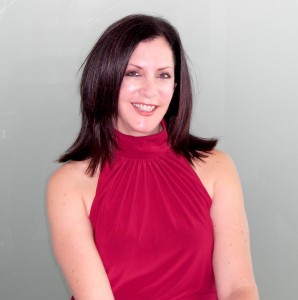
Melissa Rubin is the vice president of business development and a broker at Platinum Properties International.
Every week, we ask a Miami real estate professional for their thoughts on the top three stories from the week before.
This week, we talked with Melissa Rubin, the vice president of business development and a broker at Platinum Properties International. A 12-year veteran of the Florida marketplace, Melissa heads a team of 20 multi-lingual agents, and is recognized amongst her industry peers as a regular speaker and consultant for a range of prestigious organizations.
She is also a past chair of the Real Estate Council for the Miami Beach Chamber of Commerce, has served on the Arbitration and Grievance committees for the Miami Realtors Association since 2005, and most recently, qualified as a certified to mediator for the Miami Realtor Association.
Miami Agent (MA): We keep seeing data that suggests that homebuyer activity – both nationally and locally here in Miami – is slowing down; is that consistent with what you’re seeing from your clients?
Melissa Rubin (MR): The market right now is on four months of supply, which is relatively low. So while part of the slowdown has been seasonal, the other part is we just don’t have the inventory. As soon as people are putting their properties on the market, they are selling with multiple offers, as long as they are priced well. That’s the feeling that I have when I’m working with my clients.
In Miami, we used to be very seasonal, but now with the influx of foreign nationals, whose seasonality is different than us, we’re really busy 12 months a year. We see a little bit of a slowdown in the months of October and November, but overall, it’s busier than when I started.
The big issue for the foreign demand is how their native economies change. That will have the biggest impact to us. There’s plenty of new inventory coming on the market, and the shadow inventory is hitting the market, though those properties are gobbled up as soon as people put them out, and with multiple offers. So to me, the lack of inventory will influence us, because there’s just not enough, but I think we’ll start to see a shift as new inventory hits the market.
MA: We’re also seeing reports that home-price growth is waning, with mortgage rates risen and affordability falling. Where do you see home prices going?
MR: We’re still seeing price increases. We’ve had 27 months of price increases in Miami, so with those increases, we still predict that prices are going up because of the lack of inventory. And though the mortgage rates have gone up somewhat, they’re still relatively low, and they’re continuing to be low compared to the times when they truly did impact the market.
For the next year, inventory will continue to be the big factor in determining prices, and I think we’re going to see that for the next year until new inventory comes to market. There are 171 projects that are either proposed, under construction or in permitting phases; in Miami, three have been completed and 30 are under construction. They’re all being delivered in 2014, 2015 and 2016, so my sense is that once we start to get new inventory on the market, we’ll start to see the prices not go up as much. But right now, as long as our inventory is low, our prices will continue to go up – and especially as long as we have the demand from foreign nationals.
The magic question is, ‘Are we in for another bubble?’ The difference between 2006 and now is, during the first bubble, the buyers only had 10 to 20 percent in, whereas now, they have a minimum of 50 percent; they have so much that the likelihood of them walking away from their deposit is a much smaller possibility. So we believe you’ll see much more stable building, more closings and more cash financing. There will be inventory on the market, but not the same extant that there was in 2006 and 2007.
MA: Finally, real estate is a profession that involves many moving parts; how do you keep everything on track and maintain your focus?
MR: There are three things that I do. First, from the client perspective, I educate them. For every client, whether they are a buyer or a seller, I always give them the tips and the timeline strategy for what to expect. That way, they know what to expect when we’re going through a transaction. I find that very helpful in terms of making sure that the clients are educated, calm and that they have a peace of mind.
Second, from my perspective internally, we have systems. We calendar our systems with myself, my assistant and my attorney, to make sure that we’re all on the same page and that we have three sets of eyes looking at the transaction; that ensures that we exceed our deadlines, avoid any drama and that the client is happy.
And the third thing for me is being involved. It gives me faster access to knowledge. I’m a board of governor for the Realtors board. There are 30,000 brokers in Miami-Dade, and I’m one of 60 on three boards. I do arbitration, grievance and mediation; I’m constantly taking classes; I’m a Master Broker. So all of those things set me apart and give me better education to ultimately help our clients. And I encourage that with my agents as well, to get involved, be on boards and do everything to be out there that can impact them and their clients.

Melissa I’m trying to buy a house this Sharon Sweeting 305 834 6462